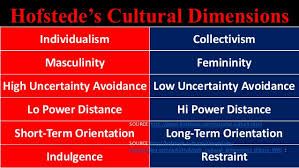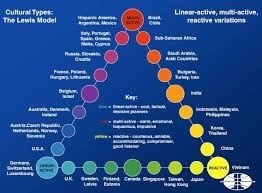Last week I had the pleasure of attending the IB Global Conference in Singapore with my amazing CISB colleagues. For me this was one of my first truly global conferences with educators from all over the world who were working in IB schools. There were over 1800 educators in attendance at the conference from Heads or Directors of schools, Principals, Vice Principals, Teacher leaders and IB personnel. The experience and the collective wisdom of the group was extensive and diverse.
I spent most of my time in sessions that supported leadership in the IB school. These sessions really pushed my thinking and allowed me to reflect and think about leadership in a new way.
During the session Developing Leadership Capabilities for Global Education Contexts hosted by Gerard Calnin and Sue Richards something finally clicked for me! I knew since arriving in China and working in an international school that there had been a piece missing for me in my leadership but I had yet to uncover what it was. In this session we spent a great deal of time examining historical information and theory about leadership.
AHA moment: Most of this research was done by Western Caucasian women and men academics and leaders in their 50-60s. This is a very narrow lens from which to examine leadership.
While some of these best practices do in fact transfer into the global context there are still some pieces missing.
CULTURE AND CONTEXT
As Westerners we make A LOT of assumptions of what a successful leader is.
AHA moment: We assume that the qualities of leaders that are valued in Western society will be valued globally.
In an IB school we have several cultural factors that we often bump up against and have to consider in all leadership decision making:
1. The culture of the country in which we live.
2. The cultures of the students and families that we serve.
3. The cultural backgrounds of our staff.
4. The learning culture of the school.
Prior to becoming a principal in an international school my experience as a leader has been primarily with individuals that have similar backgrounds, education and philosophy about education and leadership as me. I have dealt with the nuances of the variety of the schools in which I have worked and led but the culture and context is virtually the same. The strategies and characteristics of leaders valued in one was valued in the other.
In the study “GLOBE: A twenty year journey into the intriguing world of culture and leadership by Peter Dorfman, Mansour Javidan, Paul Hanges , Ali Dastmalchian and Robert House they examine “the complex, tricky, and fascinating relationships among societal culture,
organizational behavior, and leadership processes.” (Journal of World Business 47 (2012) 504)
In examining the complex nature of global leadership they uncover 8 leadership attributes that are globally undesirable:
1. Status conscious This dimension reflects a consciousness of one’s own and others’
social position holding an elitist belief that some individuals deserve more privileges than others.
2. Bureaucratic: This dimension emphasizes following established norms, rules, policies and procedures and habitually follows regular routines.
3. Autonomous This dimension describes tendencies to act independently without
relying on others; may also include self-governing behavior and a preference to work and act separately from others.
4. Face saving: This leadership dimension reflects the tendency to ensure followers
are not embarrassed or shamed; maintains good relationships by refraining from making negative comments, instead uses metaphors and examples.
5. Humane: This dimension emphasizes empathy for others by giving time, money, resources, and assistance when needed; shows concern for followers’ personal and group welfare.
6. Self-sacrificial/risk taking: This dimension indicates an ability to convince followers to invest their efforts in activities that do not have a high probability of success, to forgo their self-interest, and make personal sacrifices for the goal or vision.
7. Internally competitive: This dimension reflects the tendency to encourage competition within a group and may include concealing information in a secretive manner.
( “GLOBE: A twenty year journey into the intriguing world of culture and leadership by Peter Dorfman, Mansour Javidan, Paul Hanges , Ali Dastmalchian and Robert House, Journal of World Business 47 (2012), p. 508)
AHA Moment: When we look at these attributes, we cannot look at these as absolute undesirables. In the context and challenges of leadership there are times when some of these characteristics are required to make difficult decisions, manage crisis, solve a complex problem etc. As we examine and unpack these we begin to realize that there are times that these attributes are perceived as positive and necessary for leaders in certain situations and contexts.
When examining these attributes in a global context we need to understand that certain cultures and societies hold different values and attributes about leaders than the western world.
In my current context, some staff value being told exactly what to do. They need to know the expectation and have it stated clearly. They have very limited experience in working together to find collaborative solutions to problems. This is not their norm, this is not their culture, this is not their context. The process of giving their thoughts and opinions about a decision is foreign to them.
They also tend to say yes when they are asked to do something even if in their wisdom they know it will or cannot work. They do not want to disappoint or be disrespectful to the leader, the person they hold in a position of authority. This can lead to challenges, miscommunications and lack of understanding at times. It can be frustrating for them and frustrating for me.
In the workshop we also examined other research about culture and context including work by Hofstede and Lewis.

AHA Moment: This research also points to the need for leaders to immerse, observe, reflect, and research in an effort to deepen their understanding of the cultural context of the organization in which they serve.
One of the key findings in the GLOBE study was that the success of the leader was dependent on how aligned the leader’s behavior was with the beliefs and values around leadership the particular culture held. It was incumbent upon the leader to work to understand, align and change behavior in order to meet the needs of the context. Their success depends on it!
If we approach our leadership with the arrogance that the values and beliefs of our Western world around leadership are the “right” values then we are sure to fail. As leaders we must take the time to ask questions, observe and immerse ourselves in the culture, we must open our minds to leading in a new way, we must prepare ourselves to lead globally.


